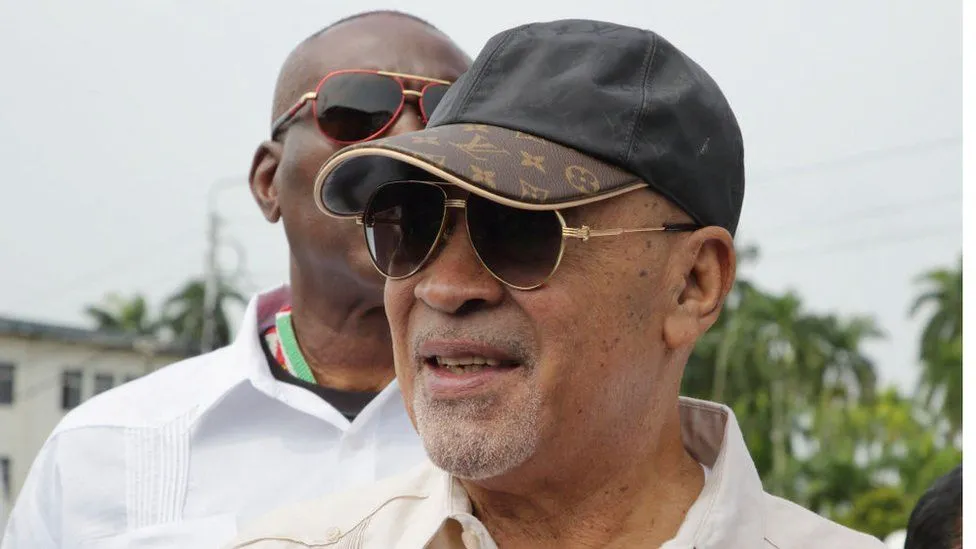Desi Bouterse, the former president of Suriname, has defied a 20-year prison sentence for his involvement in the 1982 massacre.
This decision marks another chapter in Suriname’s tumultuous political history. Bouterse’s trial, a 16-year legal journey, culminated with the High Court’s verdict in December.
In 1982, the “December Murders” occurred in Suriname, where the military government under army chief Desi Bouterse killed 15 prominent citizens, including journalists and lawyers.
His wife, Ingrid Bouterse, has called the trial politically motivated, asserting a political response to the sentence.
Desi Bouterse himself accused the Netherlands, Suriname’s former colonial ruler, of conspiring against him.
His party, the National Democratic Party, stands firmly behind him, as confirmed by Ramón Abrahams, a close ally and the party’s vice-president.
At his home in Paramaribo, supporters gathered to back Bouterse. Despite a 2012 parliamentary amnesty for the 1982 executions, the legal process continued.

Bouterse’s path to power, first as a sergeant major leading a coup in 1980, reflects the nation’s unstable political landscape, influenced by military and political conflicts.
Bouterse briefly stepped down in 1987 amid international pressure but returned to power in 1990 through another coup.
He was elected president in 2010, serving a decade until 2020. His trial began in 2007, leading to a 2019 conviction in absentia, upheld in 2020.
The Justice Ministry is arranging a particular cell for Bouterse in the Suriname Military Hospital complex.
While some convicts have surrendered, Bouterse and his former bodyguard remain at large. Abrahams reassured the public of Bouterse’s safety within Suriname’s borders.
Surinam’s volatile political climate
Before his conviction, Bouterse called for calm among his followers, aiming to endure until the 2025 elections.
He cautioned against potential unrest, highlighting Suriname’s volatile political climate.
Bouterse’s reign, marred by human rights and corruption issues, reflects the challenges in Suriname’s governance.
The 1982 massacre stands as a stark reminder of the nation’s struggle with justice and reconciliation.
Bouterse’s enduring influence and divided public opinion illustrate the complex legacy of leaders in countries with histories of military rule and political strife.
His case underscores the challenges in establishing accountability for past abuses while advancing towards stable, democratic governance.

